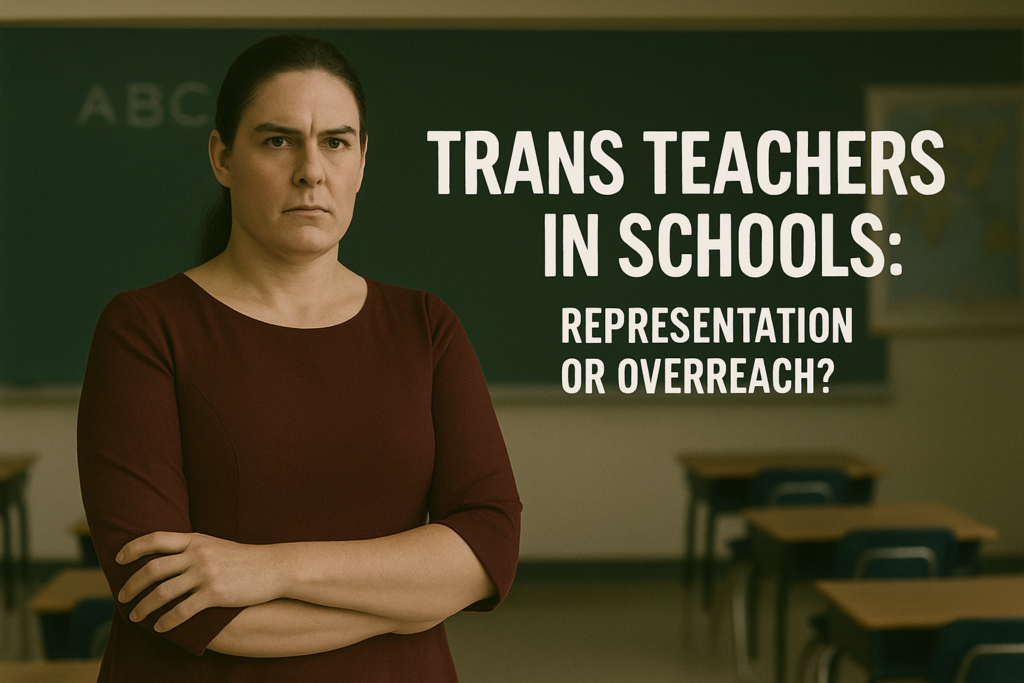In today’s society, adults have more freedom than ever before to live according to their values and identities. Whether someone identifies as male, female, or transgender, the law protects their right to live as they choose. This is a cornerstone of a free society. An adult can transition, change their name, take hormones, dress as they see fit, and express themselves in any way that aligns with their beliefs and identity.

That right, however, is personal. It does not necessarily make someone a role model or a hero simply because they made personal changes. And that distinction is important, especially when it comes to adults who work with children in schools.
Schools Are for Learning, Not Political Messaging
Children spend a significant part of their lives in schools. During those years, they are deeply impressionable. They look to teachers, coaches, and other authority figures for guidance. The adults they see every day shape their sense of what is normal, what is admirable, and what values are worth emulating.
The concern isn’t about whether someone is transgender. The concern is whether schools are starting to send a message that identifying as transgender is not just acceptable but exceptional. That it is something worthy of celebration in and of itself. There is a difference between acceptance and glorification. When school systems present trans teachers as brave or heroic simply because of their identity, they risk turning personal identity into a political or ideological statement.
What Message Are Children Receiving?
Young children are still developing a sense of self. They are learning about the world in the most basic ways. When a teacher is presented to them as a symbol, not just an educator, it raises questions about what messages children are receiving.
Are we telling them that to be special, you have to challenge your biology? Are we suggesting that identifying as something different makes you inherently more virtuous or courageous than your peers? Children do not need identity politics in the classroom. They need clear boundaries, structure, and a focus on education, reading, math, science, history. These are the tools that prepare them for real life.
Children are not developmentally prepared to process complex ideas about gender identity. That does not mean they should be shielded from reality, but it does mean schools must be cautious. There is a line between acknowledging someone’s identity and using that identity to push a cultural agenda.
Respect for All, Not Celebration of One
If a teacher is good at their job, they should be respected for their ability to teach, not for who they are outside of work.
This applies to all teachers, no matter their identity. Schools should foster respect, not hero worship. Introducing any adult as a symbol of social progress distracts from the purpose of education.
It is not about fear. It is not about hate. It is about keeping schools neutral, focused, and safe from ideological messaging.
Let Kids Be Kids
Children deserve to be children. They should not be pulled into adult issues before they are ready. They do not need to be taught who is brave based on gender identity or personal transformation. That is not education. That is social engineering.
If a trans teacher is qualified and professional, that is what matters. But if their presence in the classroom becomes more about who they are than what they teach, then we have shifted focus from education to ideology. That should concern everyone, no matter their beliefs.
Let children grow up with solid academic foundations and let adults live as they choose, but without turning personal identity into a political curriculum.
